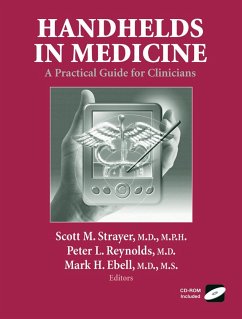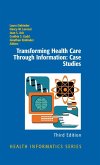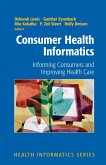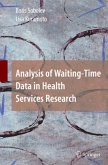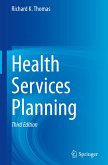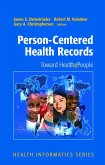Have you ever wanted to calculate the predicted peak flow for one of your asthmatic patients without spending valuable minutes searching for that confounded little slide rule gizmo? Wouldn’t it be great if you could somehow remember all Mrs. Jones’ medications when the nursing home calls to see if it’s OK to treat her acutely elevated blood pressure with some atenolol?
Handheld computers are emerging as the stethoscopes of the twenty-first century, and no clinician should be without this essential tool. These small, easy-to-use devices are now powerful enough to help clinicians manage information and make medical decisions at the point of care. This comprehensive how-to guide targets all levels of handheld computer users, from novices to experts, and demonstrates how to make the most of handheld computers in any medical practice.
Designed with easy-to-understand, hands-on exercises for each new skill presented, this book begins with choosing a handheld and "getting to know" your new device. It then progresses through downloading and installing software, using charge capture and e-prescription programs, Internet and evidence-based resources for your device, designing and programming your own programs, and going wireless. Written by three experienced family medicine clinicians, Handhelds in Medicine is designed to improve every day practice for any busy health professional. There are chapters written for and by nearly every health professional, including nurses, physician assistants and speech pathologists. The book also includes a CD-ROM with a comprehensive collection of medical software that can be installed to your handheld (trial versions) or purchased via the Web. Reviews of handheld devices and websites will be kept current at www.handheldsinmedicine.com
Hinweis: Dieser Artikel kann nur an eine deutsche Lieferadresse ausgeliefert werden.
Handheld computers are emerging as the stethoscopes of the twenty-first century, and no clinician should be without this essential tool. These small, easy-to-use devices are now powerful enough to help clinicians manage information and make medical decisions at the point of care. This comprehensive how-to guide targets all levels of handheld computer users, from novices to experts, and demonstrates how to make the most of handheld computers in any medical practice.
Designed with easy-to-understand, hands-on exercises for each new skill presented, this book begins with choosing a handheld and "getting to know" your new device. It then progresses through downloading and installing software, using charge capture and e-prescription programs, Internet and evidence-based resources for your device, designing and programming your own programs, and going wireless. Written by three experienced family medicine clinicians, Handhelds in Medicine is designed to improve every day practice for any busy health professional. There are chapters written for and by nearly every health professional, including nurses, physician assistants and speech pathologists. The book also includes a CD-ROM with a comprehensive collection of medical software that can be installed to your handheld (trial versions) or purchased via the Web. Reviews of handheld devices and websites will be kept current at www.handheldsinmedicine.com
Hinweis: Dieser Artikel kann nur an eine deutsche Lieferadresse ausgeliefert werden.
From the reviews:
"The editors have organized 20 chapters ... into a worthwhile text on handheld computer use in medicine. ... Key points, explicit hands-on exercises, and abundant screen shots are particularly strong features. ... Any health care professional (doctor, nurse, student) with patient care responsibilities ... will appreciate this informative resource." (Thomas G. McLeod, Mayo Clinic Proceedings, Vol. 80 (6), June, 2005)
"The editors have organized 20 chapters ... into a worthwhile text on handheld computer use in medicine. ... Key points, explicit hands-on exercises, and abundant screen shots are particularly strong features. ... Any health care professional (doctor, nurse, student) with patient care responsibilities ... will appreciate this informative resource." (Thomas G. McLeod, Mayo Clinic Proceedings, Vol. 80 (6), June, 2005)

